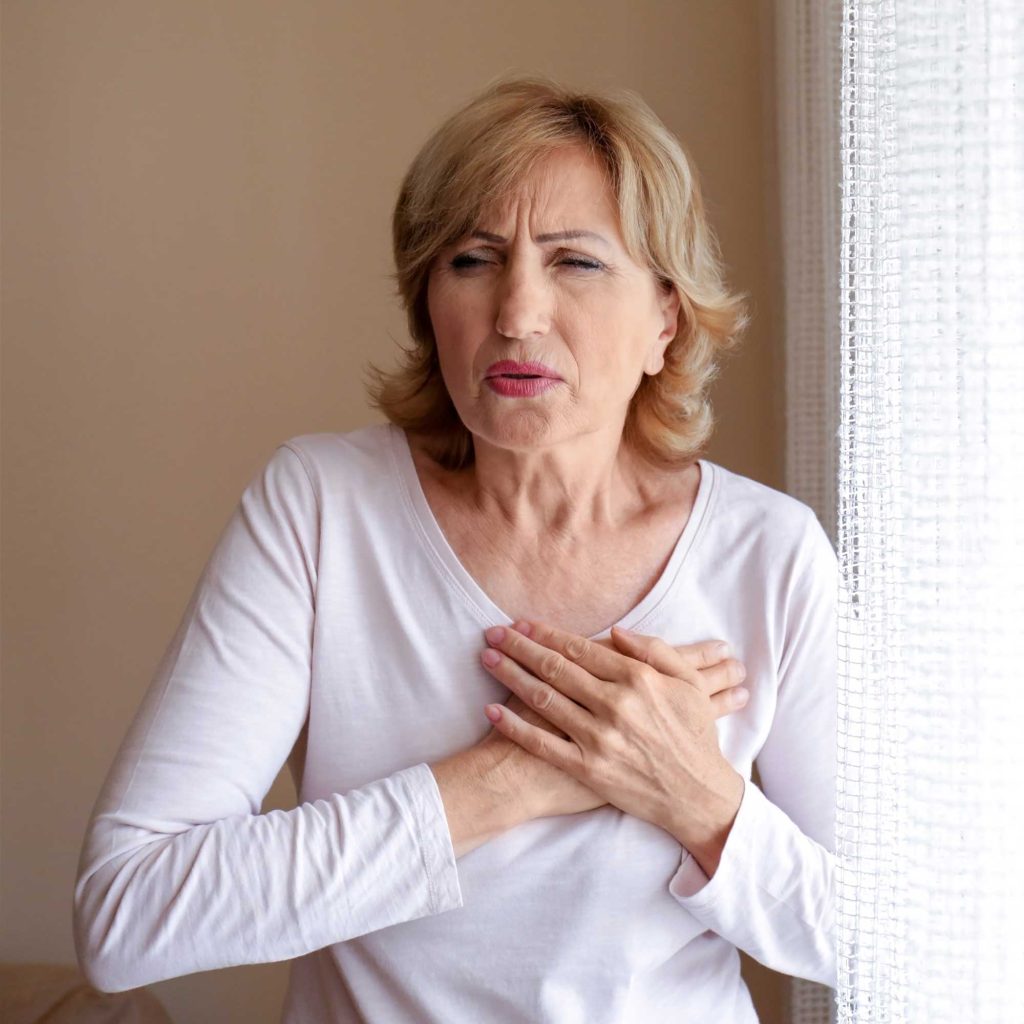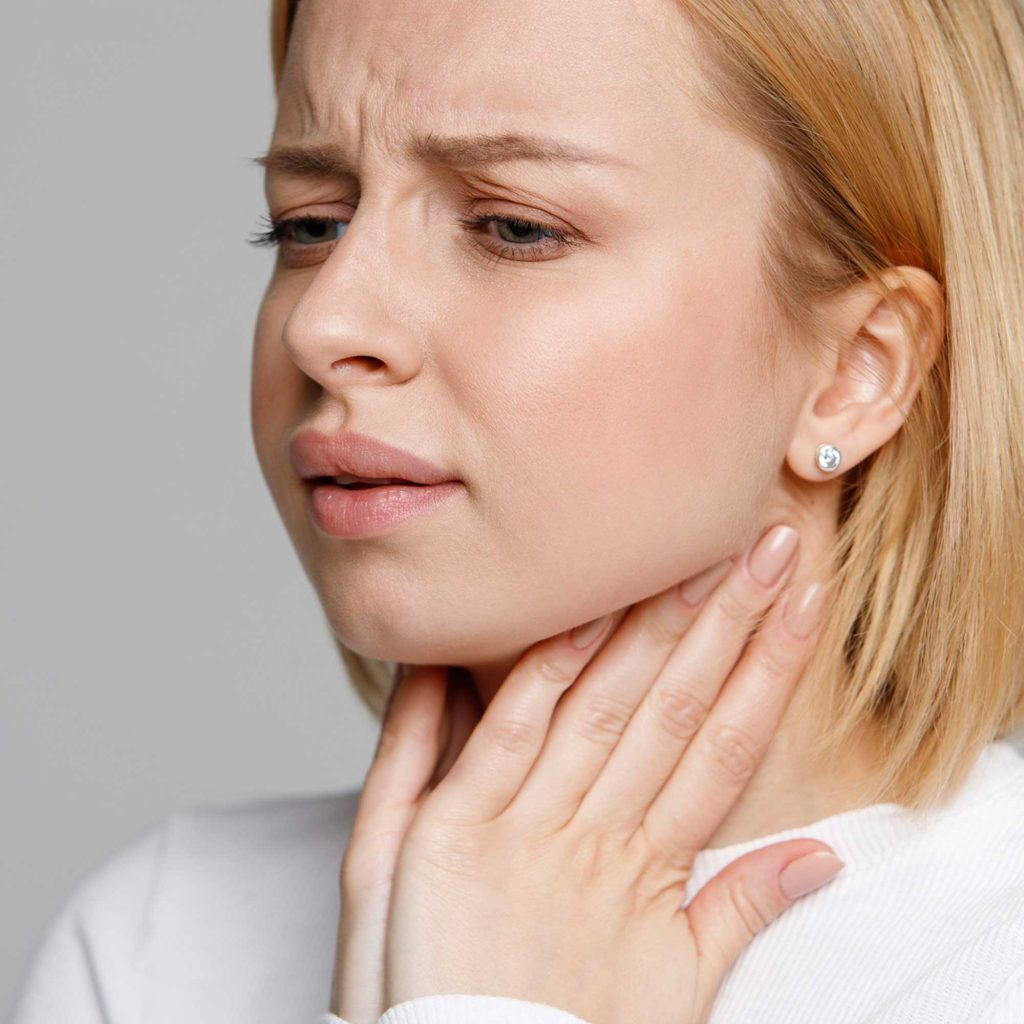SGMA
GI Conditions
GI CONDITIONS
GASTROINTESTINAL CONDITIONS
Medical professionals frequently encounter a diverse array of gastrointestinal disorders during their clinical practice.

Gastroesophageal Reflux
In cases where the lower esophageal sphincter (LES) fails to completely seal, gastric acid has the potential to escape into the esophagus, resulting in what’s often called gastroesophageal reflux, commonly known as heartburn.

Rectal Tear
An anal fissure refers to a minute tear or disruption in the lining of the anus, frequently caused by the passage of a sizable stool, childbirth, or various other contributing factors.

Anemia/Iron Deficiency
Anemia develops when the blood lacks an adequate number of red blood cells to effectively transport oxygen, potentially leading to health complications if left untreated.

Barrett’s Esophagus
Linked with GERD, Barrett’s esophagus arises when the normal tissue lining of the esophagus undergoes changes, resembling more of intestinal tissue.

Biliary Obstruction
Bile duct obstruction arises when the natural flow of bile is hindered, impeding proper digestion and potentially leading to liver disease.

Celiac Disease
Celiac disease is an immune disorder that reacts to gluten consumption, giving rise to symptoms such as headaches, fatigue, gas, bloating, and more.

C. Difficile Colitis
C. difficile infection stems from bacteria that infiltrate the body, leading to gastrointestinal disturbances. The bacteria colonize the body, causing inflammation of the bowels.

Colitis
Colitis denotes a gastrointestinal disorder marked by inflammation of the inner lining of the colon. Etiologies may vary, impacting the range of available treatments.

Colon Cancer
After the age of 45, colon cancer becomes more prevalent, but its occurrence can be prevented through regular colonoscopies and screenings for colon cancer.

Colorectal Polyps
Usually non-malignant, colorectal polyps often remain asymptomatic; however, they must be addressed due to their potential to transform into cancer.

Crohn’s Condition
Crohn’s disease can impact the entire intestinal lining and more, leading to discomfort and symptoms such as fever, cramps, rectal bleeding, and others.

Cyclic Vomiting Syndrome (CVS)
Cyclic vomiting syndrome describes instances of intense vomiting lacking a specific cause. Episodes can persist for hours or days, interspersed with periods of symptom relief.

Diverticulitis
When the outer wall of the intestine becomes infected or inflamed, it results in diverticulitis. This condition arises from diverticulosis and shares many risk factors.

Diverticulosis
The protrusion of small pouches from the intestinal lining into the colon’s exterior is known as diverticulosis, which can potentially progress to diverticulitis.

Dysphagia
Dysphagia refers to the challenge of swallowing food or beverages, often arising from muscle spasms in the throat or esophagus, or other factors.

Eosinophilic Esophagitis
Eosinophilic esophagitis (EoE) constitutes an inflammatory disorder of the esophagus, resulting in difficulties in swallowing, potential acid reflux, and abdominal discomfort.

Esophageal Motility Disorder
Esophageal motility disorder develops when the esophagus muscles do not contract properly, causing difficulties in the transport of food and liquids to the stomach.

Esophagitis
Esophagitis denotes the inflammation of the esophagus, resulting in tissue harm. This can transpire due to reasons such as acid accumulation, infections, and various other factors.

Fatty Liver Disease
Fatty liver disease (FLD) involves the accumulation of fat within liver cells, potentially leading to hepatitis or permanent damage if not addressed.

Fistula
A fistula represents an abnormal connection between two organs, with four distinct variations. This condition can arise from certain illnesses, injuries, or surgical procedures.

Food Intolerance
Food intolerance commonly develops gradually post-consumption, often excessive, of certain foods, and can manifest symptoms such as abdominal bloating, vomiting, and more.

Gallbladder Disease
Gallbladder disease encompasses an array of issues that impact the gallbladder, including conditions like gallstones, cholecystitis, and biliary dyskinesia.

Gastritis
Gastritis arises when the stomach lining becomes inflamed, irritated, or eroded, potentially heightening the risk of ulcers or cancer, though it can be managed.

GERD
GERD (Gastroesophageal Reflux Disease) materializes when acid reflux manifests at least once a week in mild instances or a minimum of twice a week in severe cases, frequently surfacing after the age of 40.

Helicobacter Pylori
H. pylori represents a stomach bacteria that, if untreated, can lead to infection and ulcers by assaulting the inner stomach lining.

Hemorrhoids
Hemorrhoids tend to emerge when the walls of veins in the rectum or anus become thin enough for swollen veins to protrude or bulge.

Hepatitis
Hepatitis manifests in three types: A, B, and C, and although manageable, can escalate to hepatic cancer and liver function impairment if untreated.

Hiatal Hernia
Hiatal hernia can materialize when a segment of the stomach protrudes through the small diaphragmatic hole (hiatus), prompting acid accumulation and heartburn.

Ileitis
Ileitis refers to inflammation occurring in the ileum, the terminal portion of the small intestine connecting to the large intestine. It results in cramps, diarrhea, or weight loss.

Impacted Bowel
Impacted bowel signifies an intestinal blockage where the large or small intestine is obstructed, leading to abdominal pain and nausea.

Inflammatory Bowel Disease
IBD is a general term encompassing inflammation within the gastrointestinal tract, manifesting as either Crohn’s disease or ulcerative colitis.

Irritable Bowel Syndrome
Hiatal hernia can materialize when a segment of the stomach protrudes through the small diaphragmatic hole (hiatus), prompting acid accumulation and heartburn.

Lactose Intolerance
Lactose intolerance refers to the situation where the body doesn’t produce enough lactase to effectively break down lactose, a component present in dairy products you consume.

Non-alcoholic Steatohepatitis
NASH, or non-alcoholic steatohepatitis, involves the buildup of fat within the liver, accompanied by inflammation, potentially leading to liver complications and more if untreated.

Pancreatitis
Pancreatitis refers to a medical situation marked by the inflammation and swelling of the pancreas, which disrupts its regular operational processes.

Peptic Ulcers
Peptic ulcers form as sores within the stomach or upper part of the small intestine, leading to discomfort, pain, and sporadic bleeding.

Primary Biliary Cholangitis
Primary biliary cholangitis represents a persistent condition capable of causing irreversible harm to the liver. Without intervention, it can progress to liver failure or even result in mortality.

Primary Sclerosing Cholangitis
Primary sclerosing cholangitis, abbreviated as PSC, is a disorder with the potential to trigger liver failure, infections, and the development of tumors within the bile ducts and liver.

Ulcerative Colitis
Ulcerative colitis results in irritation of the colon’s inner lining, leading to discomfort. Approaches to treatment can involve alterations in lifestyle, medication, and, in some cases, surgical procedures.

Liver Cirrhosis
Liver cirrhosis occurs as a consequence of liver inflammation attributed to factors such as advanced liver disease and chronic alcohol abuse, contributing to a decline in liver functionality.

Jaundice
Jaundice occurs in neonates when bilirubin (a yellow substance derived from red blood cells) accumulates in the bloodstream, resulting in a yellow hue on the skin and eyes.
Contact Us
Prioritize Your Well-being as a Priority
Regardless of the recency of your symptoms or the duration of your gastrointestinal ailment, expert medical assistance is accessible to alleviate the pain and unease you are encountering. To coordinate a consultation, kindly get in touch with our specialized team through your favored mode of communication; contact information is provided below:
Call Us Now
(281) 616-7299





